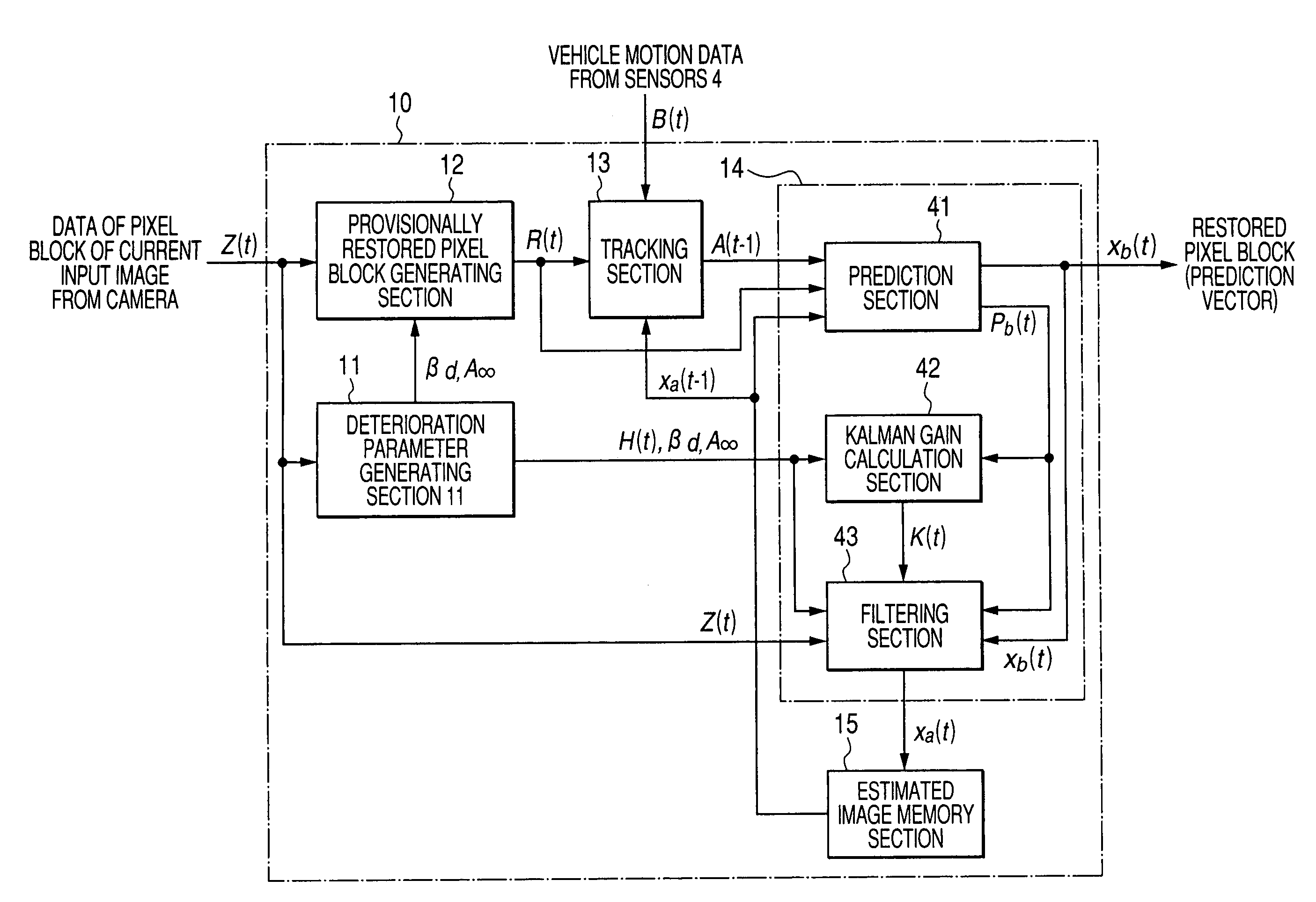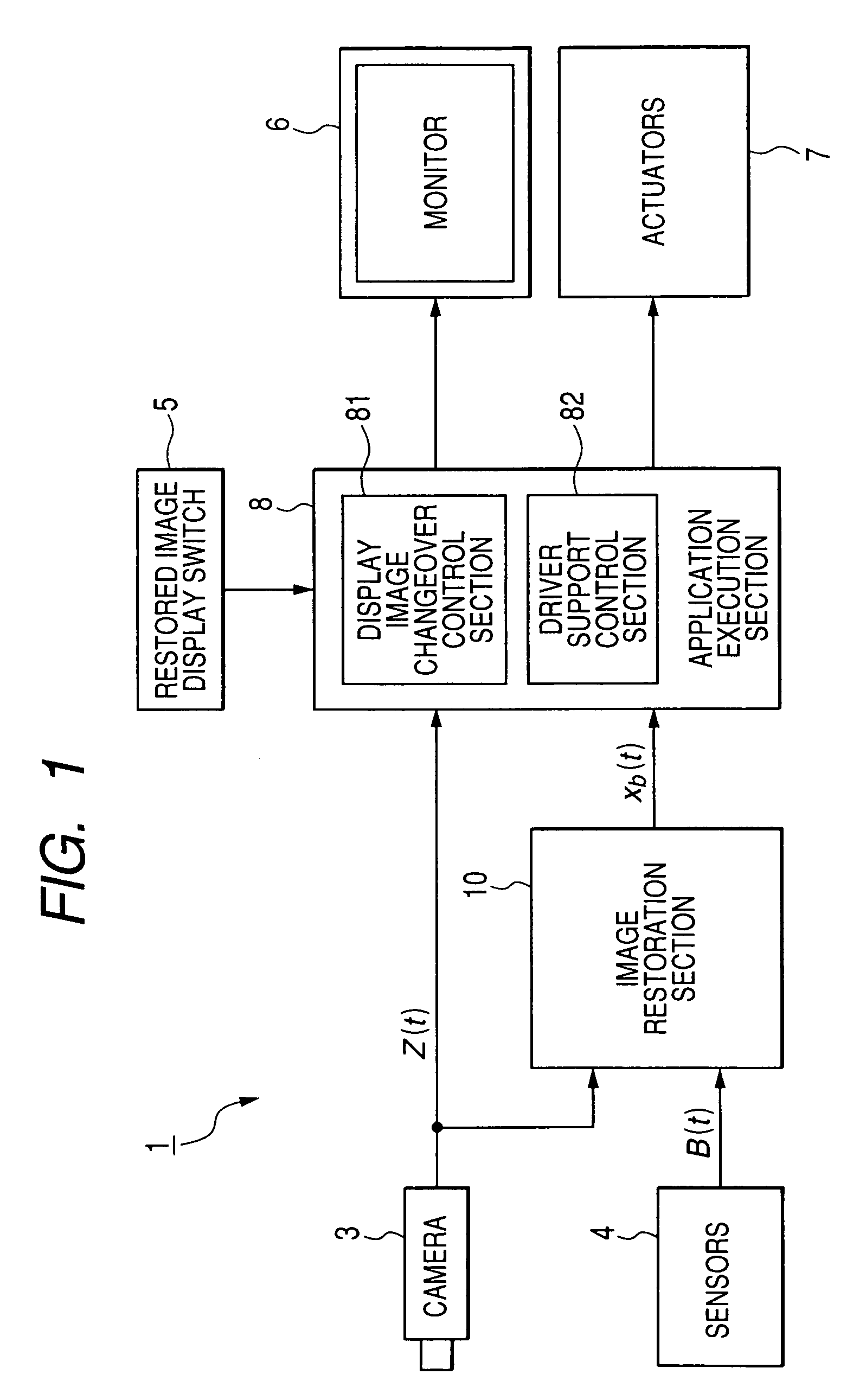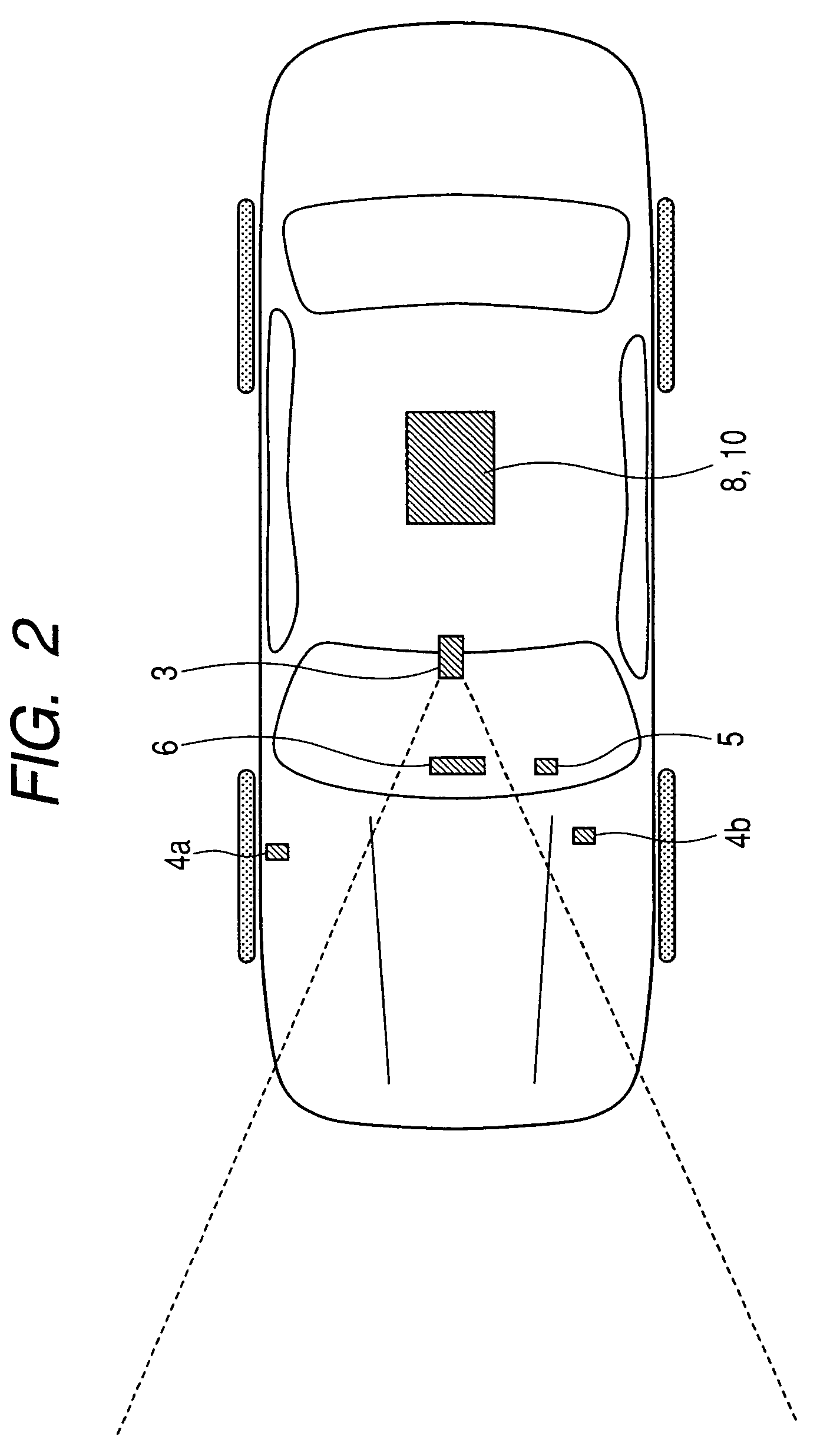Image processing apparatus for reducing effects of fog on images obtained by vehicle-mounted camera and driver support apparatus which utilizes resultant processed images
a technology of image processing and driver support, which is applied in the direction of scene recognition, instruments, vehicle components, etc., can solve the problems of insufficient driver support, the camera as well as the vehicle driver will experience reduced visibility of the surroundings of the vehicle, and it is no longer possible to provide a sufficient degree of driver support, so as to reduce the effects of fog, improve the reliability of target object detection, and clear and accurate information
- Summary
- Abstract
- Description
- Claims
- Application Information
AI Technical Summary
Benefits of technology
Problems solved by technology
Method used
Image
Examples
Embodiment Construction
[0031]FIG. 1 is a block diagram illustrating the overall configuration of a driver support apparatus 1, while FIG. 2 shows the locations of various components of the embodiment, installed in a motor vehicle.
[0032]As shown in FIGS. 1 and 2, the driver support apparatus 1 includes a camera 3 which is located at an upper central location of the windshield, in the passenger compartment of the vehicle and which captures successive images of a region ahead of the vehicle, referred to in the following as the input images. The driver support apparatus 1 further includes a group of sensors 4 (in the example of FIG. 2, an acceleration sensor 4a and a yaw rate sensor 4b but which may also include a pitch angle sensor and a steering angle sensor, etc.) for detecting various physical quantities relating to behavior of the vehicle such as the vehicle speed, yaw, pitch, etc. The driver support apparatus 1 further includes an image restoration section 10 which generates restored images having the e...
PUM
 Login to View More
Login to View More Abstract
Description
Claims
Application Information
 Login to View More
Login to View More - R&D
- Intellectual Property
- Life Sciences
- Materials
- Tech Scout
- Unparalleled Data Quality
- Higher Quality Content
- 60% Fewer Hallucinations
Browse by: Latest US Patents, China's latest patents, Technical Efficacy Thesaurus, Application Domain, Technology Topic, Popular Technical Reports.
© 2025 PatSnap. All rights reserved.Legal|Privacy policy|Modern Slavery Act Transparency Statement|Sitemap|About US| Contact US: help@patsnap.com



